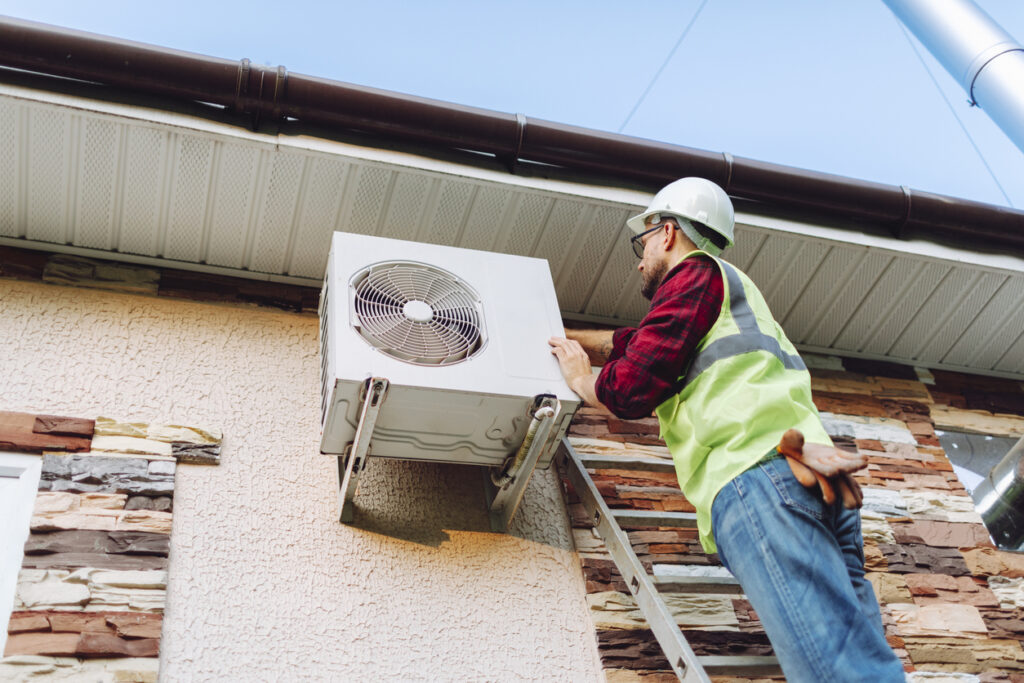In the world of HVAC, staying up-to-date with industry regulations and certifications is crucial. One such certification that HVAC technicians need to be aware of is the EPA Type 3 certification. This certification is particularly important for those who work with low-pressure appliances.
In this article, we’ll delve into the significance of EPA Type 3 certification and what it entails for HVAC technicians dealing with low-pressure appliances.
Understanding the EPA Type 3 Certification
The EPA Type 3 certification is a specialized credential issued by the Environmental Protection Agency (EPA) in the United States. It is a part of the Section 608 certification program, which aims to regulate the handling of refrigerants to prevent environmental damage.
- Low-Pressure Appliances: One of the main focuses of EPA Type 3 certification is low-pressure appliances. Low-pressure refrigerants, such as those found in chillers and heat pumps, require special handling and expertise due to their unique properties. HVAC technicians dealing with low-pressure appliances must obtain this certification to ensure they are handling these systems safely and responsibly.
- Environmental Responsibility: The EPA Type 3 certification places a significant emphasis on environmental responsibility. It educates HVAC technicians about the potential environmental hazards associated with refrigerants, especially when they are not handled correctly. By obtaining this certification, technicians demonstrate their commitment to protecting the environment.
- Legal Compliance: Working with refrigerants without the proper certification is illegal in many jurisdictions. EPA Type 3 certification ensures that HVAC technicians are in compliance with these regulations. Failure to adhere to these rules can result in significant fines and penalties.
- Safety: Safety is paramount in the HVAC industry. Low-pressure appliances, in particular, can pose unique safety risks if mishandled. EPA Type 3 certification equips technicians with the knowledge and skills necessary to work safely with these appliances, reducing the risk of accidents or injuries.
The EPA Type 3 Certification Process
Now that we understand why EPA Type 3 certification is essential let’s take a look at what the certification process entails:
- Training: Technicians looking to obtain EPA Type 3 certification must undergo specialized training. This training covers topics such as the properties of low-pressure refrigerants, safe handling practices, and environmental regulations.
- Examination: After completing the training, technicians must pass an examination to demonstrate their knowledge and understanding of low-pressure appliances and refrigerants. The examination typically consists of multiple-choice questions and practical assessments.
- Certification Issuance: Once the examination is successfully passed, the EPA issues the Type 3 certification. This certification is proof that the technician has met the necessary requirements and is qualified to work with low-pressure appliances.
About EPA Type 3: Conclusion
In the HVAC industry, EPA Type 3 certification is a valuable credential for technicians working with low-pressure appliances. It ensures compliance with environmental regulations, promotes safety, and enhances the technician’s expertise in handling these specialized systems.
As an HVAC technician, obtaining the EPA Type 1, Type 2, and Type 3 certifications not only demonstrate your commitment to environmental responsibility but also open up opportunities for you to work on a wider range of projects, including those involving low-pressure appliances. Stay informed and stay certified to excel in your HVAC career.
Remember that compliance with regulations and continuous learning are essential aspects of being a responsible and successful HVAC technician. If you’re working with low-pressure appliances, getting your EPA Type 3 certification should be a top priority.
If you’re an HVAC technician dealing with low-pressure appliances, consider obtaining your EPA Type 3 certification today to stay ahead in your career and contribute to a greener future.

